Close Ended Question
Asking the right questions is a crucial skill in various domains of communication, be it conducting surveys, interviews, or even engaging in everyday conversations. Close-ended questions are a powerful tool to gather specific information quickly and efficiently. In this article, we will explore the concept of close-ended questions, provide a step-by-step guide on how to write them effectively, address some frequently asked questions, and offer a collection of 14+ close-ended question examples in PDF format to assist you in improving your questioning techniques.
bb_toc content=”][/bb_toc]
1. Close Ended Questionnaire
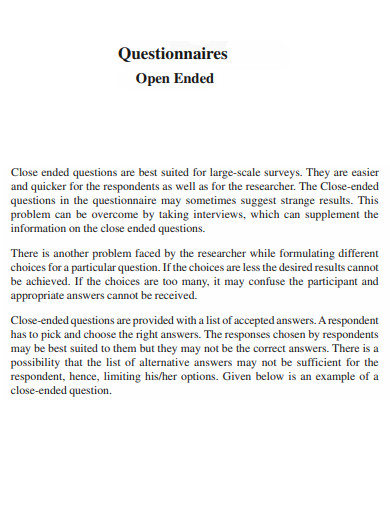
egyankosh.ac.in
2. Sample Close Ended Question
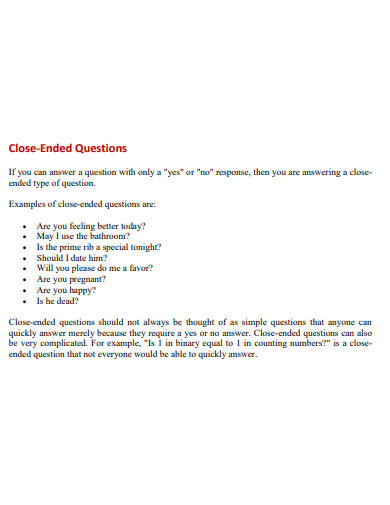
jadoon956.files.wordpress.com
3. Close Ended Question Survey
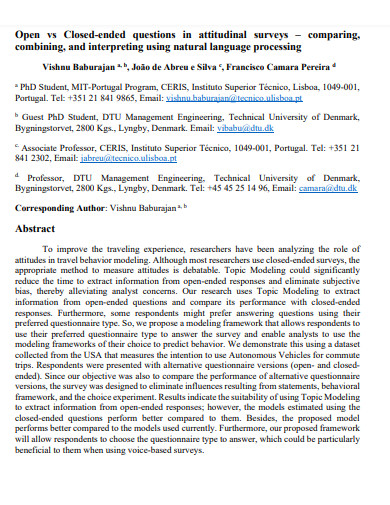
arxiv.org
4. Research Close Ended Question
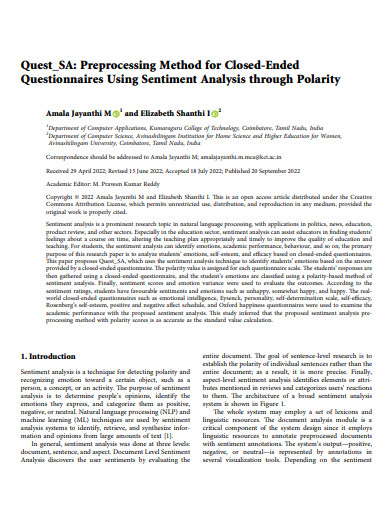
downloads.hindawi.com
5. Close Ended Question Interview
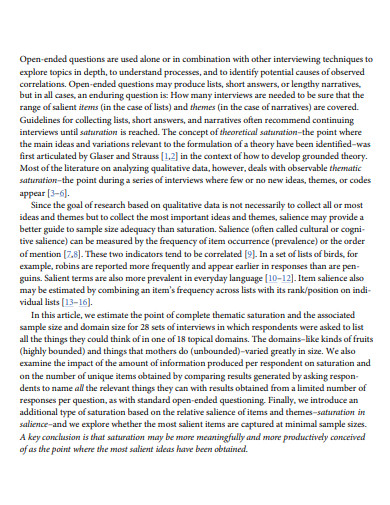
journals.plos.org
6. Close Ended Question Quantitative
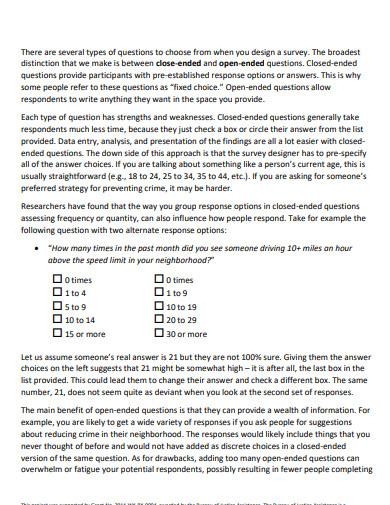
smart-policing.com
7. Learning Close Ended Question
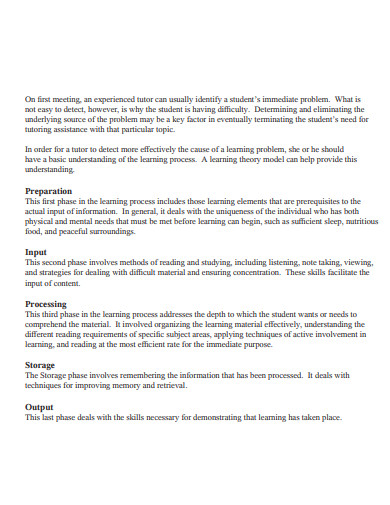
courses.byui.edu
8. Child Close Ended Question
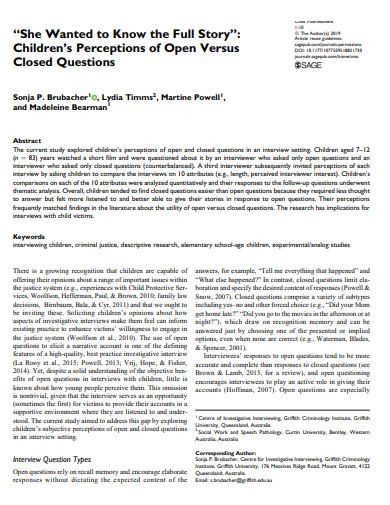
nationalcac.org
9. Close Ended Question Structure
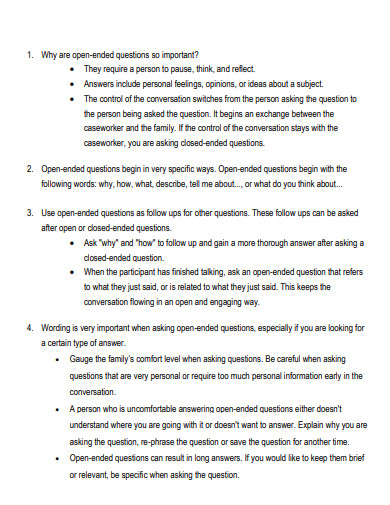
files.nc.gov
10. Close Ended Question Response
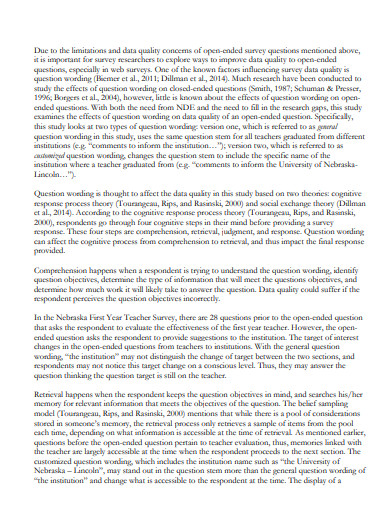
education.ne.gov
11. Close Ended Question Interpretation
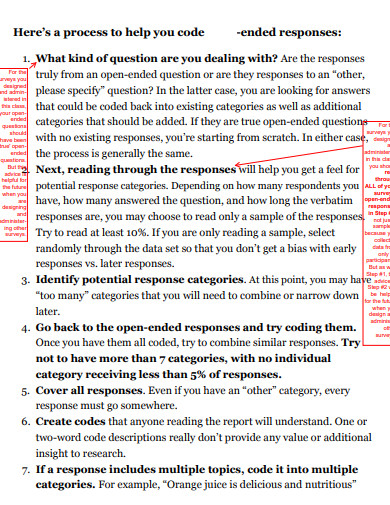
online225.psych.wisc.edu
12. Close Ended Question Employee
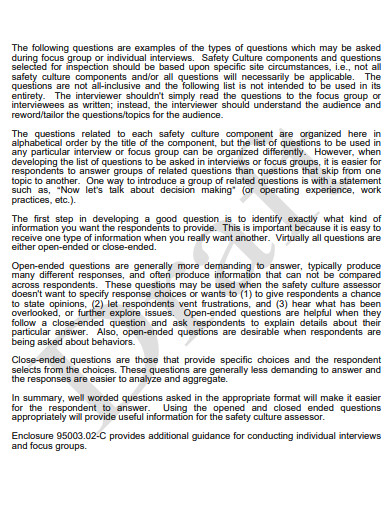
nrc.gov
13. Close Ended Question Advertising

ftc.gov
14. Food Close Ended Question
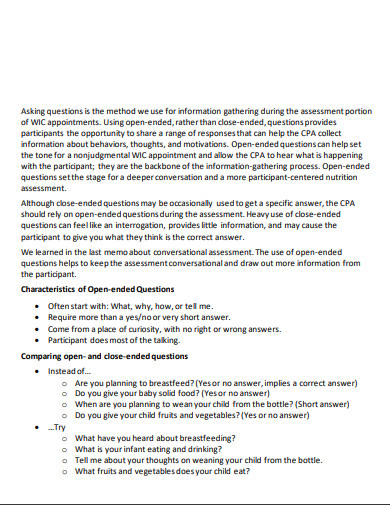
health.state.mn.us
15. Close Based Ended Question
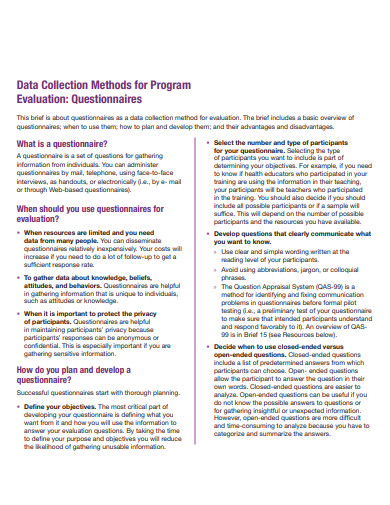
cdc.gov
What is a Close-Ended Question?
Close-ended questions are inquiries that can be answered with a limited set of predetermined options, typically resulting in short, concise responses. Unlike open-ended questions that encourage detailed explanations and varied responses, close-ended questions aim to elicit specific information or preferences in a straightforward manner. By employing close-ended questions, communicators can streamline conversations and obtain precise answers efficiently.
How to Write Close-Ended Questions
Crafting well-structured close-ended questions requires careful consideration of the desired information and the response options available. Follow these steps to create effective close-ended questions that yield clear and concise answers.
Step 1: Define the objective:
Begin by clarifying the purpose of your inquiry. Identify the specific information you seek or the goal you aim to achieve through the question.
Step 2: Determine the type of response:
Decide whether a single-choice, multiple-choice, or rating scale response format is most appropriate for your query. This choice will depend on the nature of the information you are seeking.
Step 3: Develop the question stem:
Construct a concise and clear question stem that captures the essence of what you want to ask. Use simple language and avoid ambiguity or jargon.
Step 4: Formulate response options:
Create a limited set of response options that covers the possible range of answers. Ensure the options are mutually exclusive and collectively exhaustive, leaving no room for ambiguity.
Step 5: Order the response options:
Arrange the response options in a logical sequence. Consider whether a specific order or randomization would be most appropriate for your particular inquiry.
Step 6: Test and refine:
Before finalizing your close-ended question, test it with a small group of individuals who represent your target audience. Gather feedback, identify any potential issues, and refine the question accordingly.
FAQs
Can closed-ended questions lead to biased responses?
While close-ended questions can provide precise information, they may limit respondents’ ability to express nuanced views. It’s essential to design the response options carefully to avoid leading or biased responses.
What are the advantages of using close-ended questions?
Close-ended questions enable researchers and communicators to gather specific information quickly, facilitate data analysis, and compare responses systematically. They also minimize the chances of misinterpretation or misunderstanding.
How many response options should I include in a close-ended question?
The number of response options depends on the nature of the question and the complexity of the subject matter. In general, it is advisable to provide a reasonable range of options while keeping the list concise to avoid overwhelming respondents.
Mastering the art of close-ended questioning empowers communicators to extract precise information while maintaining conversation flow and efficiency. By following the step-by-step guide provided, you can create well-crafted close-ended questions that cater to your specific objectives. Remember, effective questioning is a skill that can be honed over time, and utilizing the 14+ close-ended question examples in PDF format accompanying this article will serve as a valuable resource to enhance your communication endeavors.


